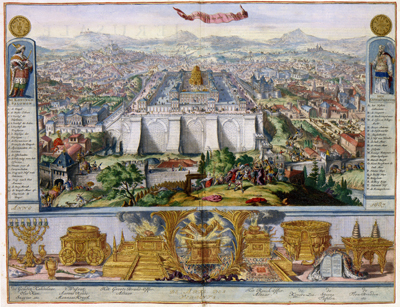I have been using StumbleUpon for a little while now and it has been an enjoyable education for me. I have found various fascinating, cultural ideas and interesting links which I would not have discovered if I had remained using the same, usual channels for research. It has allowed me to come across many subjects, issues and creative projects that may not fit into any typical canon, framework or institutional platform. It has also convinced me that many individuals out there in the world, do possess a positive thirst for knowledge and openness to new ideas, as well as alternative avenues of creativity.
On May 30th 2007, StumbleUpon was officially sold to eBay. When this happened many of the users within the community expressed their concern regarding the sudden changes. As yet, there have not been any negative changes to the social networking environment to justify such fears, but time will tell.
If you are interested visit my own Stumbles under the name of LifeHacker Below is the image used as part of my own bio...

I am networked to many people/users within StumbleUpon. One of them is a writer and journalist known as Caravia on StumbleUpon who lives in Stockholm, Sweden. Her real name is Ana L. Valdés. Her bio expounds "My friends define me as a cultural relativist. I don't feel myself as "belonging". Freelance catholic, freelance anarchist but definitely a humanist struggling for dialog and for meaningfull encounters." When looking at her Stumbles, it does not seem as though there is a struggle for meaningful encounters any more, when one observes her reviews by other stumblers. One stumbler says "First I must mention her breadth of knowledge, which comes from a combination of intelligence, curiosity, reading and more lives lived in one lifetime than most of us can imagine. To boil her unique experience of life down to just a sentence or two: she was born in Uruguay into a cultured and well educated family that was part Italian, part Spanish and other mixes."
Ana has been through much turmoil in her life and if you wish to know more you will have to visit her Stumble section. For now though, I wish to concentrate not on her personal, political past, but her present offerings and thoughts about the world to the interested, networked world. The content mainly reflects on political history, media art projects and personal, creative texts, some are extracts from her own essays and novels.
One of her many interesting stumbles features Lidia Zamenhof, the daughter of Ludwig Lazarus Zamenhof the creator of the universal language Esperanto.

"Her life and actions as a Baha'i of Jewish background and as a promoter and user of Esperanto and translator of many Baha'i writings into that language make her a significant figure in the history of the European and American Baha'i and Esperanto movements in the 1920s and 30s." "Esperanto was adopted very early for the Anarchists and the pacifists, who saw in the universal language a bridge between peoples and cultures."
If you delve further you will also find an article that Ana wrote called Troubled Gender in a Virtual World. An essay on online games, identity and gender issues in the digital world.

"Everquest, made in the US by American engineers and designers, is a cultural product showing our stereotypes, clichés and flaws. The cities in the game are frozen in time and remind one of Thomas Moore's Utopia, where neither class struggle nor mayhem disturb the city's perfect harmony. The characters in the virtual reality are devoid of all physical attributes, the heroes and the villains don't sweat or get dirty. Neither are they subject to any normal physiological urgencies."
Ana also wrote an article on the Israeli architect on Eyal Weizman's thesis The Politics of Verticality -- The role of the Israeli architecture in the Middle East conflict.

"In 1930, Jerusalem was crowded with pious pilgrims from all faiths and countries. Dr. Heinz Herman, a psychiatrist, discovered among his patients an exaggerate sensibility for matters concerning religion and faith. He treated people who believed they were reincarnations of the Messiah or were convinced that John the Baptist or Mary of Magdala had chosen their bodies to live again and preach the return of Jesus. He called the sickness Jerusalem Syndrome. The symptoms of the sickness were an intense need to wash and to wear white clothes. Many of them had arrived with their families or groups who left them. They saw visions and heard voices that commanded them to prepare the path for the coming of the Messiah; they had conversations with Holy Mary and with the Holy Ghost. Nobody can be indifferent to Jerusalem. Today, the holy city, holy for the three monotheistic religions of the world, is a split city, going towards an uncertain future. Both Palestinian and Israeli claim the city as their capital." The full version of this fascinatiing text can be found on http://www.netartreview.net/weeklyFeatures/Weizman_English.html
If you fancy discovering and reading something that offers a real insight into history which offers more than textual postering, that unearth's and educates beyond the usual glorification and cultural cache making that, many of us get tangled up in now and then - you can't go far wrong in spending some of your valuable time on Ana's Stumbles.
Caravia (Ana L. Valdés)- http://caravia.stumbleupon.com
| Attachment | Size |
|---|---|
| 432px-LidiaZ.jpg | 48.2 KB |
| A Map of Old Jerusalem 1687.jpg | 211.87 KB |
| everquest.jpg | 43.04 KB |
| mybio_image.jpg | 37.6 KB |